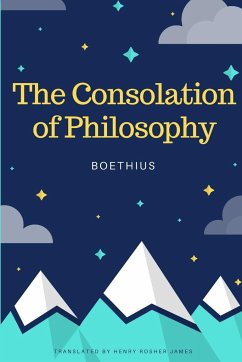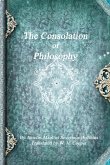The Consolation of Philosophy has been described as the single most important and influential work in the West on medieval and early Renaissance Christianity, and is also the last great Western work of the Classical Period. Written while Boethius was in prison awaiting execution, the work consists of a dialogue in alternating prose and verse between the author, lamenting his own sorrows, and a majestic woman, who is the incarnation of his guardian Philosophy. The woman develops a modified form of Neo-Platonism and Stoicism, demonstrating the unreality of earthly fortunes, then proving that the highest good and the highest happiness are in God, and reconciling the apparent contradictions concerning the existence of everything.
Hinweis: Dieser Artikel kann nur an eine deutsche Lieferadresse ausgeliefert werden.
Hinweis: Dieser Artikel kann nur an eine deutsche Lieferadresse ausgeliefert werden.








